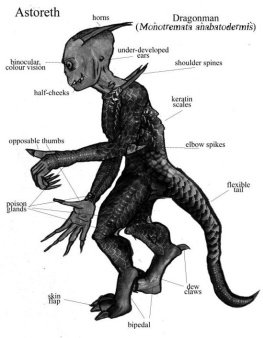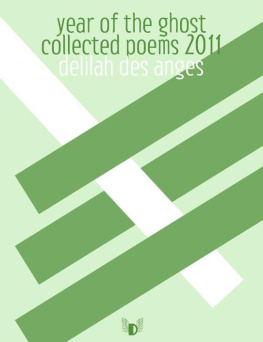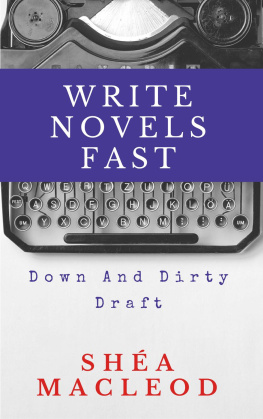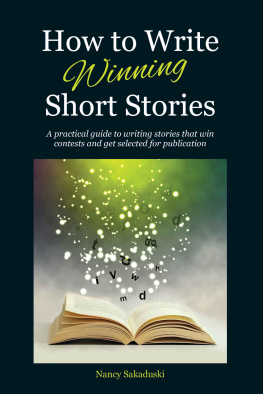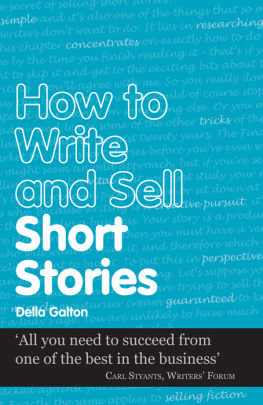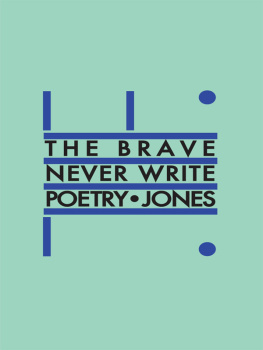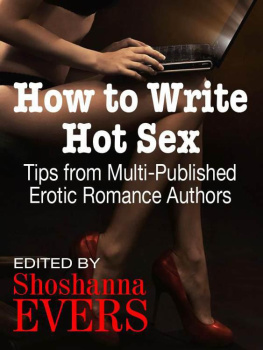Delilah Des Anges - How Not To Write, By Someone Who DoesnT
Here you can read online Delilah Des Anges - How Not To Write, By Someone Who DoesnT full text of the book (entire story) in english for free. Download pdf and epub, get meaning, cover and reviews about this ebook. year: 2011, publisher: lulu.com, genre: Art. Description of the work, (preface) as well as reviews are available. Best literature library LitArk.com created for fans of good reading and offers a wide selection of genres:
Romance novel
Science fiction
Adventure
Detective
Science
History
Home and family
Prose
Art
Politics
Computer
Non-fiction
Religion
Business
Children
Humor
Choose a favorite category and find really read worthwhile books. Enjoy immersion in the world of imagination, feel the emotions of the characters or learn something new for yourself, make an fascinating discovery.

- Book:How Not To Write, By Someone Who DoesnT
- Author:
- Publisher:lulu.com
- Genre:
- Year:2011
- Rating:4 / 5
- Favourites:Add to favourites
- Your mark:
- 80
- 1
- 2
- 3
- 4
- 5
How Not To Write, By Someone Who DoesnT: summary, description and annotation
We offer to read an annotation, description, summary or preface (depends on what the author of the book "How Not To Write, By Someone Who DoesnT" wrote himself). If you haven't found the necessary information about the book — write in the comments, we will try to find it.
How Not To Write, By Someone Who DoesnT — read online for free the complete book (whole text) full work
Below is the text of the book, divided by pages. System saving the place of the last page read, allows you to conveniently read the book "How Not To Write, By Someone Who DoesnT" online for free, without having to search again every time where you left off. Put a bookmark, and you can go to the page where you finished reading at any time.
Font size:
Interval:
Bookmark:
How Not to Write, by Someone Who Doesn t
Delilah Des Anges
Delilah Des Anges 2011
All rights reserved
Other books by this author published by House of D
Know Your Words (with Al Kennedy & Amy Kreines)
Shots in the Dark
Kissing Carrion (with G K Blekkenhorst)
Hamilton
Pass the Parcel
For the Love of a City: Poems for and About London
Tiny Fictions #1
Tiny Fictions #2
Other books published by House of D
Help: Twelve Tales of Healing
This is a collection of rants, essays, lists, and other marginalia and arguments relating to the awfulness that is attempting to write novels, short stories, and poetry. You fool! Put this book down and back away slowly. It is not for polishing your ego at all!
I have been writing since I was about 7 and I graduated from Middlesex University in 2004 with a 2:1 in Creative Writing or Writing and Media depending on which version of the certificate you look at. Ive mostly self-published, and occasionally published other peoples work as well; for a while I co-ran a small comics press. Ive written for one or two magazines, but mostly I just shout opinions at the internet and inflict bad poetry on strangers.
Ordinarily this is precisely the kind of writing guide I would steer clear of myself: its written by a writer Ive never heard of and it clearly takes itself too seriously, and therefore wont give me any useful advice.
Fortunately for you there is also a list of more useful books at the back of this thing, so it hasnt been a complete waste of your money.
Likewise, do not bloody ask for my advice if youre just going to shout at me about it. If you wanted validation you should have said so.
Validation is important to everyone, not just writers, but at some point if were ever going to improve, someone will have to point out that youre not doing your best. They will point out that what is currently your best can be improved. They may also point out that if you ask for someones honest opinion on your work you might well be faced with the uncomfortable proposition of actually receiving it.
Any number of people might be the recipient of the message quoted at the top of this page.
Not any one person who springs to mind, but more an amalgamation across time and space of people who have for some reason known only to their Swiss-Cheese brains decided that I was a good person to ask for advice on being A Writer in much the same way that you ask a horse for advice on how to become an astronomer.
These same people also decided to, when I had trotted out my standard, to throw a fit of huffs about how that doesnt sound fun or there has to be another way or what about talent. My standard is, by the way: write a lot, write even when you really dont want to, try these exercises which annoying though they were when I was set them at university have proven invaluable tools when stuck now, read a lot and analyse what youve read, try word sketches, eavesdrop, keep a diary, and most of all WRITE MORE.
What about talent, they say. That doesnt sound like fun, they say.
To which I will say:
Talent raises my hackles something fierce (hackles are like testicles but you only have them if youre a hack, har de har). I find it so enormously insulting, whether its used to explain why someone is an amazing special pony snowflake princess and therefore shouldnt have to practice , or used as a regretful sighing woefaced excuse as to why youll never be a special pony snowflake princess and therefore ... dont have to practice .
Clearly no ulterior motive there at all.
Look, I recognise the form. I do it too. It is not anything but making excuses for laziness, out of either arrogance or defeatism. I do it all the time! Oh, theres no point in me practicing drums because I have no musical talent and will never be any good. Wrong . Yes, I have dyspraxia, but that can be worked around.
What I am saying when I declare Im not going to be any good at something ever is really: I dont want to commit that much time and energy and focus to it.
The latter (defeatism) is frustrating, the former (arrogance) infuriating; talent is not giving credit where credit is due for hard work and focus.
Everyone has teachers, influences and the like, whether its growing up in a musical household which helped you to get a good grounding in harmonics and pitch when you were still young enough to absorb it easily, or the years you spent copying out of that one art book over and over.
No one is born a magical sparkle princess of talent and awesomeness. Yes, some people have to work harder at it than others. Some writers are dyslexic, some visual artists are colour-blind, some sculptors have arthritis. Some people have to work harder at it than others because some people start out at a disadvantage but we all have to work at it .
Let me repeat, for the record and for your reassurance, I do this shit too. I am not saying Im immune to it, and nor am I saying youre immune to it, so youre not getting out of it that easily.
One of the reasons the wahhwaaaaahhwaaaahh- ing about exercises and practice being hard or annoying or pointless makes me want to commit murder so badly is that its the lazy voice in my head made flesh. Its always easier to yell at other people for mistakes you make yourself.
Exercises help.
I know you dont want to hear that. I know you dont want to do them. I know you want to write chirpy vignettes and dialogue and sex scenes.
But just doing that is like learning how to cook soup but not how to prepare the ingredients or light the stove. Or, if you prefer, like riding a bike without learning how to fix a puncture or reattach a chain: sooner or later youll be stuck and it pays to know how to get yourself moving again.
1. Fractal Description
This is one I invented for myself after leaving university and running face-first into Seroxat-induced writers block on a global scale. Ive suggested it to people before and been greeted with whines about how its hard and pointless and boring and why would you do that. I will explain why you would fucking do that in a minute, okay?
Take a small, nondescript item. When I invented this I used a stick about four inches long.
Write down what it is.
Start a new line. Write down one descriptive factor about this object. (i.e. It is a stick. The stick is brown. Congratulations, you are now Ernest Hemmingway. Pour yourself a gin).
Over the course of the next several pages you are going to get to know a lot about this stick, because you are - in prose, both poetic and analytical, going to describe every single fucking facet of that fucking stick in levels of detail you didnt know existed.
You will talk about the precise hue changes over the bark, the texture, the shape. You will note every single tiny blemish. You will talk about the smell and what it reminds you of. You will speculate on the sound it makes when snapped, what it would taste like when chewed by a dog or a woman in labour (you can chew it if you want to express your frustration with the exercise but then you have to describe the dents and the wetness of your saliva on it , so Id advise against that).
Every time you note a feature or a thought about the stick, expand on it. Talk about why . Make connections and explain those connections:
This stick would be bad for playing pooh-sticks with because it is small and light, so although it would go quite fast it would be difficult to spot from the top of a high bridge, although with a clap-stone bridge if you are lying on your stomach it might be a better choice; we used to play that very intense, face-to-the-rive kind of pooh-sticks while wasted when I was in high school
Next pageFont size:
Interval:
Bookmark:
Similar books «How Not To Write, By Someone Who DoesnT»
Look at similar books to How Not To Write, By Someone Who DoesnT. We have selected literature similar in name and meaning in the hope of providing readers with more options to find new, interesting, not yet read works.
Discussion, reviews of the book How Not To Write, By Someone Who DoesnT and just readers' own opinions. Leave your comments, write what you think about the work, its meaning or the main characters. Specify what exactly you liked and what you didn't like, and why you think so.

